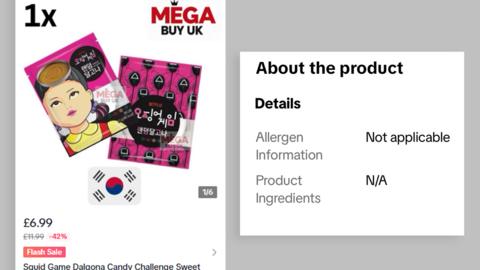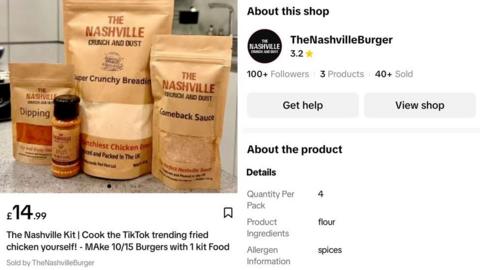TikTok is a place where food trends go viral - from the pickle challenge which involved eating a hot pickle wrapped in a fruit roll-up - to Dubai chocolate which sparked a shopping frenzy.
And while users consume the videos TikTok has also become a platform to buy and sell a bite of the action.
Kate Lancaster's two children both have milk allergies and she regularly posts advice on TikTok as The Dairy Free Mum.
She thinks TikTok has a responsibility to ensure all products sold on its shopping platform meet safety and labelling standards.
"It's completely unacceptable and really worrying. Failing to provide ingredient information is potentially very dangerous, and it feels like a complete disregard for the safety of those living with food allergies," she said.


